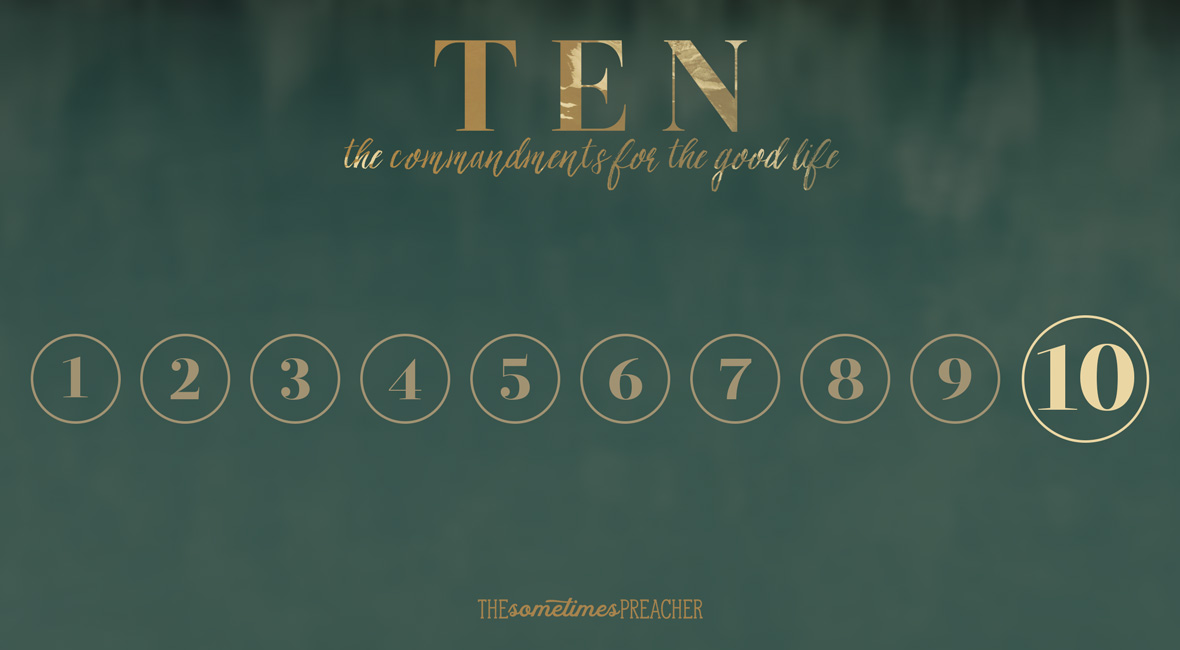Do Not Covet: Commandment 10

“You shall not covet your neighbor’s house. You shall not covet your neighbor’s wife, or his male or female servant, his ox or donkey, or anything that belongs to your neighbor.”
This is the only commandment that deals directly with a person’s interior world. To covet is to desire to possess that which does not belong to you. It is a state of the heart. To covet is to express discontentment with what you have been given. It is a posture of ingratitude that begets misery and bitterness. Left unchecked, it can drive us to violent actions. Like all wickedness, it is easiest to deal with covetousness when it is still a matter of the heart. Do not let it get any bigger than that. Do not let it leave your heart and manifest itself in words and actions that cannot be taken back. Kill it in your heart so that it does not kill you.
The antidote to covetousness is twofold: gratitude and contentment. To battle with a desire of the heart we must raise up a new and godly posture of the heart. This battle will only be won in your interior world, where your thoughts and desires have their home. Fight against the desire to possess what does not belong to you by being grateful for, and content with, what you already have.
Gratitude focuses our attention on what we have while covetousness focuses our attention on what we do not have. A grateful heart is one that is turned toward the people and things in your life with appreciation. Instead of saying, “I wish I had a nice car like my neighbor,” I can say, “I am glad that I have a car that gets me where I need to go, and I’m thankful that it runs.” But if I am so caught up in coveting my neighbor’s car, I will treat my own car with contempt. Gratitude elevates the people and possessions in our lives, but covetousness denigrates them.
The antidote to covetousness is twofold: gratitude and contentment.
In the same way, contentment is the acceptance that that which is in our lives is sufficient. A contented heart will say of the car, “I don’t need all those fancy bells and whistles in my car. Maybe I’ll have a car with those features someday, but for now I’m happy to live without them.” Contentment is internal protection against desiring the things and people in another’s life for yourself. Our heart’s posture should be, “I am thankful for what I have, and it is enough for me.”

